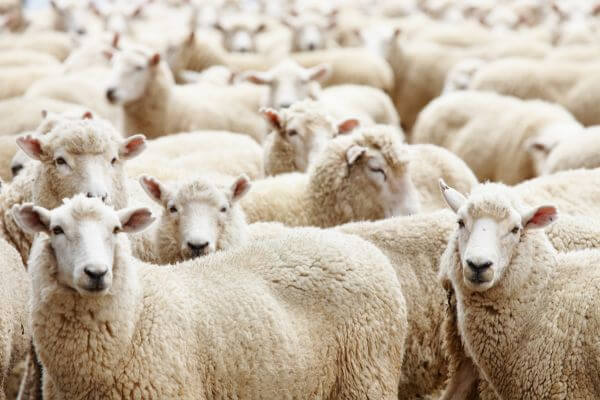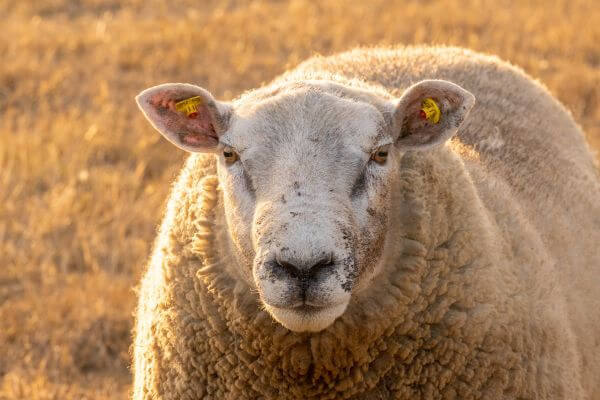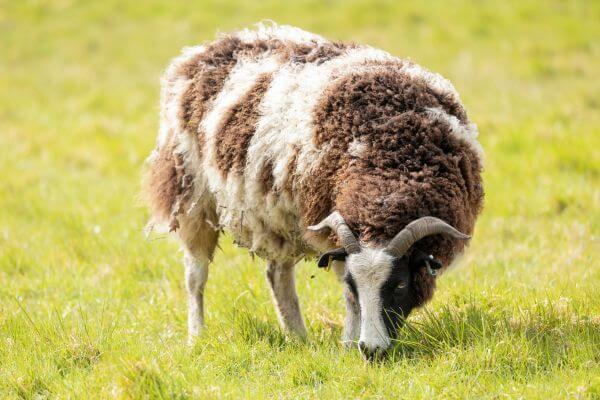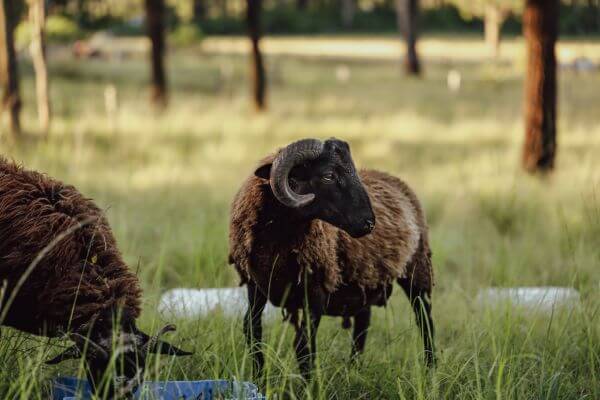Selecting the ideal sheep breeds for both wool and meat production can be a challenging yet crucial task for the success of any livestock enterprise. In this article, we will explore some of the best options available and discuss their distinct characteristics.
Choosing the Best Breeds

When it comes to choosing the best sheep breeds for your flock, it’s essential to consider several important factors. Among these are adaptability to the local climate, ease of handling, and, of course, the quality of the wool and meat produced.
When deciding on the sheep breeds to raise, it’s fundamental to assess the environment in which they will be kept. Some breeds are better suited to cold climates, while others thrive in warmer regions. Additionally, the availability of pasture and feed resources should be taken into consideration.
Another crucial aspect to consider is the ease of handling of the selected breeds. More docile breeds that are less prone to escape make daily handling easier and reduce stress for both the animals and the breeders. Effective management is essential for ensuring the welfare of the flock and optimizing production.
Lastly, it’s important to evaluate the quality of the wool and meat produced by different sheep breeds. Breeds renowned for the softness and durability of their wool, as well as the juiciness and flavor of their meat, are generally preferred by breeders. After all, the quality of the end product is critical for commercial success.
Creating a Successful Flock

When creating a successful flock of sheep, it’s essential to follow some basic guidelines to ensure the best performance and profitability.
Start by selecting breeds known for their adaptability to your local environment. This will ensure that your sheep are more resilient to diseases and adverse weather conditions, promoting the overall health of the flock.
Additionally, invest in adequate infrastructure, such as secure fencing, comfortable shelters, and efficient feeding systems. Good management of the breeding environment significantly contributes to the welfare and productivity of the sheep.
Last but not least, stay updated on the best practices for sheep care and management. Participating in workshops, courses, and discussion groups can provide valuable insights and help you hone your skills as a breeder.
Maximizing Production
By selecting the best sheep breeds, you’ll be taking a significant step toward maximizing production on your property.
By choosing breeds adapted to your environment and specific needs, you’ll ensure that your animals thrive and consistently produce. This will result in greater efficiency in wool and meat production, increasing your long-term profits.
Additionally, by investing in breeds known for their superior wool and meat quality, you’ll be adding value to your end products. This can open doors to more demanding and premium markets, allowing you to command higher prices for your products.
Lastly, don’t forget the importance of taking good care of your sheep. Careful management, proper nutrition, and regular monitoring of the flock’s health are essential to ensuring consistent and high-quality production over time.
Efficient Management Strategies

Implementing efficient management strategies is crucial to the success of any sheep farming enterprise.
One of the first steps is to ensure that your facilities and equipment are suitable for the needs of the flock. Secure fencing, comfortable shelters, and effective feeding systems are essential for ensuring the welfare of the sheep and facilitating daily management.
Additionally, it’s important to develop a balanced feeding plan that meets the specific nutritional needs of your sheep at different stages of development. This will ensure healthy growth, consistent production, and better quality wool and meat.
Another important strategy is to implement a herd health monitoring program, including regular vaccinations, parasite control, and periodic veterinary exams. This will help prevent diseases and health problems, ensuring the longevity and optimal performance of your flock.
Investing in the Future

Investing in the future of your sheep flock is essential to ensure its sustainability and long-term success.
One way to do this is through careful selection of high-quality breeding stock. Choose animals with good genetic characteristics, such as disease resistance, quality wool production, and fast growth, to ensure strong, healthy offspring.
Sheep Breeds Additionally, consider investing in innovative technologies and practices that can improve the efficiency and productivity of your business. This may include implementing remote monitoring systems, using assisted reproduction techniques, and adopting sustainable agricultural practices.
Finally, don’t forget to continue learning and staying updated on the latest trends and developments in sheep farming. Participating in industry events, reading specialized publications, and connecting with other breeders can provide valuable insights to help you achieve your goals.
Committing to Excellence
Committing to excellence in all areas of sheep farming is essential for long-term success.
This means taking a proactive approach to herd health management, including disease prevention practices, regular monitoring, and quality veterinary care. Investing in animal health is essential to ensure the welfare and productivity of the flock.
Additionally, it’s important to constantly seek ways to improve the efficiency and sustainability of your business. This may involve adopting more environmentally friendly agricultural practices, using innovative technologies, and targeting more lucrative markets for your products.
Finally, always remember the importance of providing the best possible care for your sheep. Healthy and happy animals not only produce better results but also contribute to a positive and lasting reputation for your business.
Cultivating Sustainable Relationships
Cultivating sustainable relationships with your sheep, your community, and other breeders is essential for the long-term success of your enterprise.
This involves not only taking good care of your sheep but also respecting the environment and the local communities where you operate. Sustainable and responsible agricultural practices help preserve natural resources and ensure a prosperous future for all.
Additionally, it’s important to build strong partnerships with other breeders and industry professionals. Sharing knowledge, experiences, and resources can be incredibly valuable and help strengthen the entire sheep farming community.
Finally, don’t forget to involve your local community and your customers in your operations. Promoting transparency, offering high-quality products, and supporting local initiatives are powerful ways to build trust and loyalty with your audience.
Innovating for the Future
Constant innovation is essential to staying relevant and competitive in the sheep farming market.
This may involve adopting new technologies, developing new products, or implementing innovative management practices. Always be on the lookout for the latest trends and opportunities for improvement in your operation.
Additionally, be open to partnerships and collaborations with other businesses and institutions. Together, you can find creative and effective solutions to common challenges and drive innovation across the industry.
Finally, never underestimate the power of customer feedback. Always be willing to listen to their needs and concerns and adjust your practices and products as necessary. This will ensure that you are always offering the best possible service and staying ahead of the competition.
Respecting Tradition
Respecting and honoring tradition in sheep farming is essential for preserving the history and culture of this age-old activity.
This means valuing traditional techniques and practices that have been passed down from generation to generation over the years. These traditions not only have historical and cultural value but often are also effective and sustainable.
Additionally, it’s important to recognize and celebrate the contribution of rural communities and sheep breeders to the economic and social development of their regions. Supporting and strengthening these communities is essential to ensuring a prosperous future for everyone involved in the industry.
Finally, always remember that tradition and innovation do not have to be mutually exclusive. It is possible to incorporate new ideas and technologies while remaining firm in the values and principles that have sustained sheep farming for centuries.
Preparing for Success
Proper preparation is essential for success in sheep farming and ensuring a prosperous future for your business.
This involves not only choosing the best breeds and implementing effective management practices but also cultivating a strong commitment to excellence, innovation, and respect for tradition.
By adopting a holistic approach to sheep farming, you’ll be laying the groundwork for a sustainable and successful business in the long run. Always remember the importance of taking good care of your sheep, respecting the environment, and supporting your community.
With dedication, passion, and a continuous commitment to learning and improvement, you’ll be prepared to face the challenges and seize the opportunities that come your way. So, roll up your sleeves and get ready for success in sheep farming!
Conclusion:
Proper preparation is crucial for success in sheep farming. By choosing the best breeds, implementing effective management practices, and cultivating a commitment to excellence and innovation, you’ll be on the right path to achieving your goals. Always remember the importance of taking good care of your sheep, respecting the environment, and supporting your community. With dedication and passion, you’ll be prepared to face the challenges and seize the opportunities that come your way. So, roll up your sleeves and get ready for success in sheep farming!